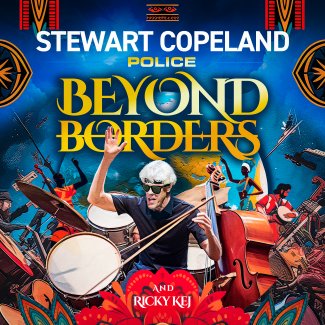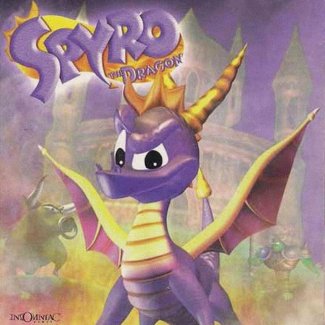
Stewart Copeland: Symphonic
Police Deranged For Orchestra
A high energy orchestral evening celebrating the work of legendary rock star and composer Stewart Copeland. Following his high impact ‘Light Up The Orchestra’ project celebrating his composition in Film, TV and Video Games, ‘ Police Deranged For Orchestra’ focuses on the epic rise of Stewart’s career in music that has spanned over four decades.
Copeland is a unique figure in world music: renowned as the founder of The Police, a band that became a defining force in rock music from the ‘80s through to the present day; he is also a seasoned and prolific composer in opera, ballet and orchestral music.
This concert will be an evening bursting with The Police’s biggest hits including ‘Roxanne’, ‘Don’t Stand To Close To Me’ and ‘Message in a Bottle’ sung by four singers and full symphony orchestra as well as hand-picked highlights from Copeland’s other hits.

Gallery




Police Beyond Borders
The creative duo of two-time Grammy-winning album Divine Tides — Stewart Copeland and Grammy-winning Indian musician/composer Ricky Kej — announce their latest world music collaboration, Police Beyond Borders. Furthering their mission to feature leading talent from around the world, the album, recorded in Bangalore, is a reinterpretation of the seminal 80s band’s classic songs with diverse interpretations and artist representation from South Africa, India, Japan, China, Canada, the U.K., and more.
Copeland and Kej have enlisted top international artists, including South Africa’s Grammy-winning Soweto Gospel Choir; China’s “Father Of Rock” Cui Jian; U.S.-based Berklee Indian Ensemble; Japanese Grammy-winner for Best Global Music Album, Masa Takumi; South Africa’s acclaimed Mzansi Youth Choir; leading Indian composer/singer Shankar Mahadevan; renowned British classical trumpeter Alison Balsom; multi-award winning Canadian flutist Ron Korb; legendary Bollywood composers and brother duo Salim-Sulaiman, hammered dulcimer virtuoso Max ZT; and multi-instrumentalist Serj Tankian of metal band System of a Down.

Spyro Symphonic
Stewart Copeland is notable for composing the music for the original video game Spyro the Dragon trilogy (Spyro the Dragon, Spyro 2: Ripto’s Rage!, Spyro: Year of the Dragon) and Spyro: Enter the Dragonfly.
Spyro the Dragon soundtracks (1998 – 2002, 2018)
He was commissioned by Insomniac Games in 1998 to make the musical score for the hit PlayStation game Spyro the Dragon. Copeland would play through the levels first to get a feel for each one before composing the soundtrack. He also stayed with the project to create the musical scores for the remaining Insomniac sequels Spyro 2: Ripto’s Rage! and Spyro: Year of the Dragon. The franchise shifted over to Universal for the fourth title, Spyro: Enter the Dragonfly, which would be Copeland’s last outing with the series. The limited edition of the fourth game came packaged with a bonus CD, containing unused tracks. The soundtracks were very well received, and one track would later appear on the 2007 compilation album The Stewart Copeland Anthology. Copeland composed a new title theme for Spyro Reignited Trilogy.

Tyrant’s Crush
The first concerto written with his own performance in mind, Stewart Copeland has created a work that features his own brilliant drumming plus complimentary parts for members of the percussion section and an array of exotic percussion. The
work celebrates the un-tapped virtuosity of the symphonic percussion section and demonstrates that the distance between rock drummer and timpani virtuoso is not as fas as one may think.
The concerto is titled Tyrant’s Crush: Concerto for Trapset and Orchestra and was commissioned by the Pittsburgh Symphony Orchestra.
Gamelan D Drum
Gamelan D’Drum is a 3 movement, 35 minute composition for World Percussion and Orchestra by Stewart Copeland. Near the conclusion of the 2007-08 world tour of The Police (the third highest grossing tour in history), Stewart was introduced to the music of D’Drum by the Dallas Symphony Orchestra in search of a composer for a commissioned work to feature the group with the orchestra. He immediately accepted the invitation and came to Dallas to begin collaboration with the group that is currently ongoing.
It was premiered on 2011-02-05 Dallas, TX, USA. In 2013 D’Drum started a kickstarter project to finance a documentary about the genesis of this collaboration. One of the rewards for funders was a signed CD with the composition. The music on this CD features Stewart Copeland’s electronic orchestra music — recorded at the Sacred Grove in 2010. D’Drum’s live percussion was recorded in May 2010 at Palmyra Studios, Palmer, TX, USA.
Off the Score
“Off the Score” is a sizzling performance collaboration between drum legend Stewart Copeland (The Police), visionary pianist Jon Kimura Parker, Met Opera violinist Yoon Kwon, rising star bassist Marlon Martinez and champion of the Electronic Valve Instrument (EVI) Judd Miller. New works by Copeland and Parker collide with amped up renditions of great pieces from the classical canon including Ravel’s Piano Concerto in G and Piazzolla’s Oblivion. Add in jazz pianist Mike Garson’s Paganini Variations and a wild arrangement of an Aphex Twin tune and the annihilation of genre is complete! The debut tour in spring 2015 played to ecstatic crowds who jumped to their feet during Parker’s white hot arrangement of Stravinsky’s The Rite of Spring, which the Toronto Star claimed “single-handedly advanced global warming” when performed as a solo work on his unanimously praised CD Rite. Future audiences will be eager to take an inspiring look at a musical universe that shines beyond definition.
Repertoire includes Copeland’s own works alongside Bach, Prokofiev, Ravel and Stravinsky.
Lights Up the Orchestra
A high impact orchestral celebration of the highlights of Stewart Copeland’s legendary career in music. An evening packed with epic music from The Police songs to his best known Film scores from Francis Ford Coppola’s Rumblefish to Oliver Stone’s Wall Street and even some of Spyro the Dragon!
A concert for all audiences from a multi-talented and crucial figure in the global musical scene spanning four decades.
Co- arranged and Conducted by Musical Director Troy Miller (producer for Jamie Cullum, Laura Mvula, Gregory Porter)
With more than three decades spent at the forefront of contemporary music as a rock star and acclaimed film composer, as well as in the disparate worlds of opera, ballet, and world and chamber music, this concert showcases a range of Stewart’s work with orchestral arrangements of Police hits alongside orchestral, TV & film (Ben-Hur, Wall Street, Equalizer) and gamemusic (Spyro the Dragon) highlights. All of the music is arranged for full symphony orchestra in this Stewart Copeland extravaganza!
BEN-HUR, A Tale of the Christ
Stewart Copeland has spent more than three decades at the forefront of contemporary music as rock star and acclaimed film composer, as well as in the disparate worlds of opera, ballet, and world and chamber music.
Copeland moved beyond the rock arena in the mid-1980s when he returned to his classical roots with creative pursuits in concert and film music. His original score to BEN-HUR, A Tale of the Christ was commissioned by Virginia Arts Festival, and features Copeland as soloist in a live orchestral score for the 1925 silent film.
This is a project that for the first time combines Copeland’s many talents in composition, orchestration, film scoring, film editing, and his remarkable virtuosity behind the drums. As a film composer, Copeland has worked with many of the greatest film directors of our generation, including Francis Ford Coppola and Oliver Stone.
SAVED! The Ballad of Sarah Palin
A ballet in three scenes.
The first tableau is a Survivor-like tropical island reality game in which players roil with intrigue to vote competitors off the island.
The second scene is in church, a faith healer exhorts his faithful throng, he heals and saves individuals one by one, his protege and lieutenant Sarah sees through him; infatuated, he abandons his flock to move on her. She rejects him while stealing his congregation, telling them “You’re Saved!”
Scene three follows the fifteen minute career arc of Sarah Palin.
Sarah, with her energy and guile is able to work all of the levers of power (both good and bad) to rise up and snatch victory. The fact that she’s on the wrong team for us liberals is just for fun. If we can laugh at ourselves while letting the other team win in a fantasy setting we might all just start to get along better.
The plot points of the story are all conceived to be narrated with body language. We can see the social groupings and interplay in the ritualized settings of the survival game, the church and in politics. If the dance moves are literal the small choir can provide more stylized commentary. The voices can hit the headlines of the story while the dancers show the details.
Finnegans Wake
The main attraction of an opera of Finnegans Wake is that it will illuminate the most famously dark novel in Irish literature. It is the most famous book that no one has read! The obstacles of Joyce’s capricious word-play have been a barrier for most (attempted) readers but an opera could be the Rossetta Stone that reveals this great work at last.
It’s about a patriarchal figure (Finnegan) who commits a sexual indiscretion with two girls in Phoenix Park, Dublin, and is observed in the act by three soldiers. The scandal results in his downfall. At his trial the most important piece of evidence is a letter written by his wife, the contents of which are not revealed until the end of the book. (it’s a soaring poem of love.) There are messages about religion, cultural self-deception and history, there are vivid characters and a solid story with a beginning, middle and end – even if the end in this case is also the beginning (very Joyce).
The main characters and the main plot points are duplicated again and again (Finn again). The stories within the story are all actually the main plot repeated in different guises.
Opera is particularly suited to illuminate this work because so many of the elements that make the book “difficult” are the bread and butter of music. The strange phonetic syllables that seem so alien on the page have great dramatic power as music. And the very sound of the poly-ethnic language, when spoken aloud, is evocative in a way that print can never be. Add to this the illustrative power of the stage and Finnegan’s Wake, in all of its mysterious glory, can be revealed!
Jon Kimura Parker Piano and Drums Concerto
The Stars That Played (with Lucky Joe’s cards) began life as a spark in Stewart’s mind in 1984 originally imagined as a ballet about a poker game in which the protagonist players deceive each other while surrounded by wild winds of fate. JKP and SC have a long standing relationship through their work with various projects and wanted to collaborate on a new work and Stewart and Jackie thought this thread could really work as a piece for orchestra, drum set and piano.
“The musical language had always been piano-based but now I could really push the piano to the front of the stage and get those fingers flying.”






